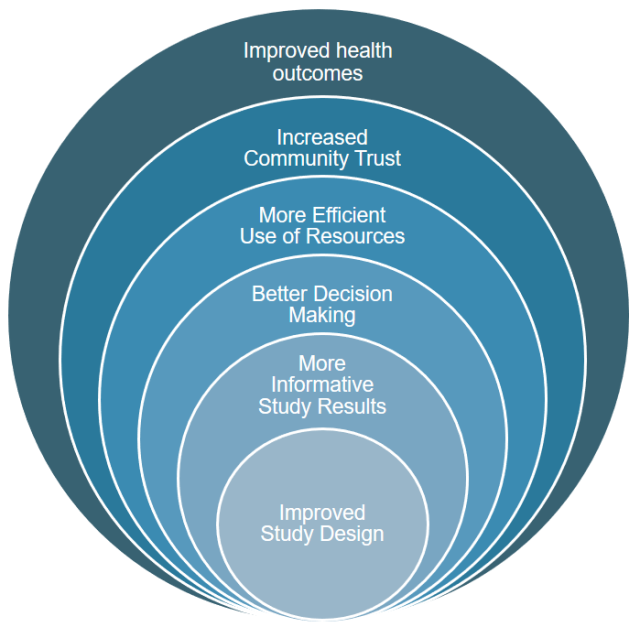Design, Analyze, Communicate: Working together to improve clinical study outcomes.
Creating informative clinical studies
Unfortunately, it is well documented that not all clinical studies provide robust answers to the questions being posed. In 2019, Deborah Zarin and colleagues coined the term “uninformative trials.”[2] “An uninformative trial is one that provides results that are not of meaningful use for a patient, clinician, researcher, or policymaker.” In the supplement to their paper in JAMA, they identified 12 qualities of clinical trials associated with uninformative trials, which they called “red flags.” A year earlier, Professor Trudie Lang’s Global Health Network surveyed Low- and Middle-Income country based (LMIC) researchers about the parts of trials with which they needed critical methodological help.[3] Respondents coalesced around 27 factors. Other experts have published studies and guidance to address the same question.[4,5,6,7] Studies that failed to influence policy change or a confident next step in a go/no-go decision were commonly associated with factors such as lack of use of common endpoints, lack of conservatism in effect estimates, not using biostatistical simulation to derive proper sample sizes, using unduly restrictive inclusion criteria, and avoiding the use of innovative trial designs.
Creating informative clinical studies requires a team of qualified specialists. Frequently this includes but is not limited to principal investigators, experts in the given disease, pharmacologists, pharmacometricians (where the intervention is a drug or requires a dose and regimen selection), statisticians, and operational experts. Many studies supporting advances in healthcare in LMIC countries also require local input.
The DAC Knowledge Hub is an open digital platform intended to improve visibility and uptake of the research methods that lead to informative outcomes in clinical research.
Please note: Implementors of studies should also always refer to relevant regulatory standards and guidelines (e.g. FDA, EMA) to assist with study/protocol design.
